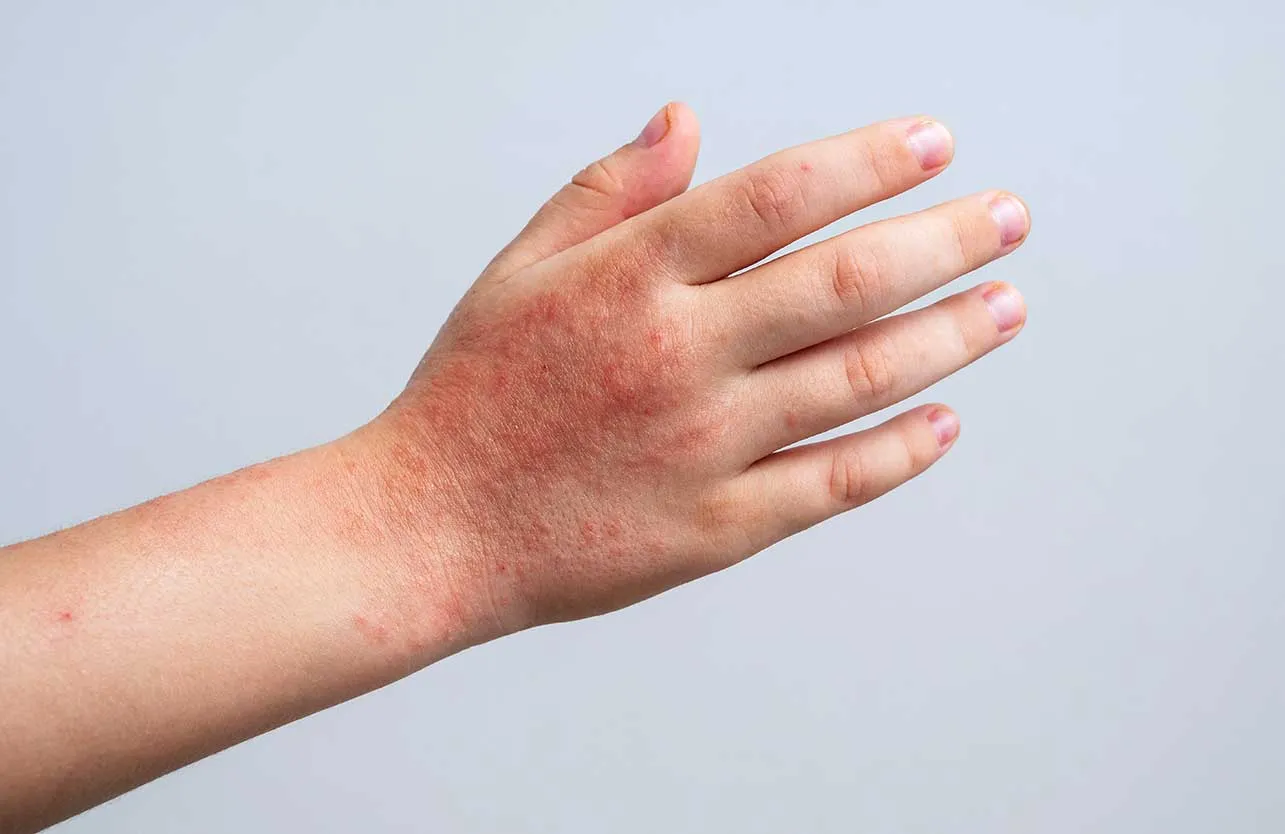The Link Between Eczema and Stress: A Psychodermatology Approach
What Is Eczema?
Eczema (dermatitis) is a chronic inflammatory skin condition marked by dryness, redness, itching, scaling, and sometimes fluid-filled blisters. It includes several subtypes such as atopic dermatitis, contact dermatitis, and seborrheic dermatitis.
More than a surface-level skin issue, eczema deeply impacts emotional well-being, often leading to anxiety, sleep disruption, and reduced quality of life.
What Is Psychodermatology?
Psychodermatology is a multidisciplinary field that combines dermatology and psychiatry. It investigates how emotional and psychological factors influence skin health and vice versa.
In the case of eczema, emotional stress is not just a trigger but also a consequence. Therefore, effective eczema management often requires a holistic approach that treats both the skin and the mind.
The Vicious Cycle of Eczema and Stress
Stress can trigger eczema flares, and eczema symptoms can cause emotional distress—this forms a self-reinforcing cycle:
- Stress increases
- Skin barrier weakens, leading to dryness and inflammation
- Eczema symptoms worsen
- Individual experiences anxiety, sleep issues, or low self-esteem
- These amplify stress, continuing the cycle
Breaking this cycle is essential for long-term symptom control and psychological well-being.
How Stress Physically Affects the Skin
Stress influences the skin through several physiological pathways:
1. Increased Cortisol Levels and Barrier Dysfunction
- Stress leads to elevated cortisol, which compromises the skin’s barrier.
- Transepidermal water loss increases, making the skin drier and more reactive.
2. Immune System Dysregulation
- Stress alters immune responses, increasing the release of pro-inflammatory cytokines (like IL-4, IL-13), which are implicated in eczema.
- This promotes itching and inflammation.
3. Nerve Stimulation and Sensory Sensitivity
- Stress boosts the release of neuropeptides like substance P, which intensify itching and erythema.
- These signals make skin more reactive to minor stimuli.
The Psychodermatology Approach: Healing Skin by Calming the Mind
Traditional eczema treatments focus on moisturizers, topical corticosteroids, and antihistamines. However, a psychodermatological strategy addresses the psychological drivers of flare-ups, alongside physical symptoms.
1. Psychological Counseling and Therapy
- Cognitive Behavioral Therapy (CBT) has shown significant results in reducing eczema-related stress and flare frequency.
- Addressing anxiety and depression improves treatment outcomes.
2. Stress Management Techniques
- Meditation, breathing exercises, and yoga help regulate the body’s stress response.
- Sleep hygiene and regular exercise are also crucial.
3. Psychopharmacological Support (When Needed)
- In severe psychological distress, short-term use of antidepressants or anxiolytics under psychiatric supervision may help stabilize symptoms.
- This is particularly effective in treatment-resistant eczema.
Psychodermatological Interventions for Eczema
|
Technique |
Purpose |
Effects |
|
Cognitive Behavioral Therapy |
Reduce emotional burden |
Fewer flare-ups |
|
Relaxation Techniques |
Manage daily stress |
Less itching and irritation |
|
Mindfulness Practices |
Improve awareness and focus |
Better sleep, less reactivity |
|
Expressive Therapy |
Emotional release |
Indirect control of inflammation |
Daily Strategies to Manage Eczema with a Mind-Body Approach
- Keep a stress diary: Track emotional patterns and how they relate to flare-ups.
- Interrupt the itch-scratch cycle: Use cold compresses or stress balls instead of scratching.
- Acknowledge your emotions: Emotional suppression can worsen symptoms; allow yourself to feel.
- Practice self-compassion: Your skin isn’t your enemy—it may be signaling distress. Learn to support it kindly.

